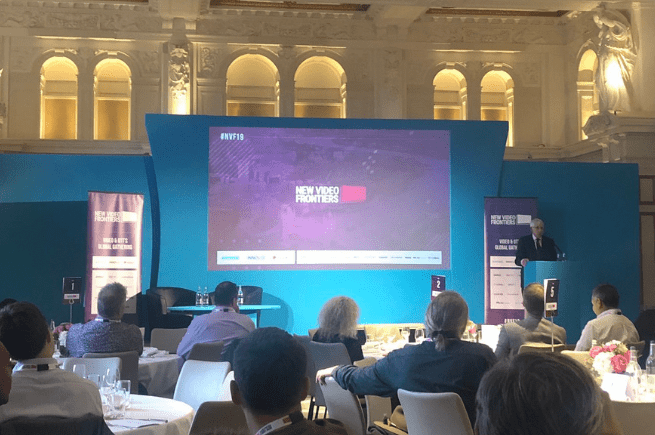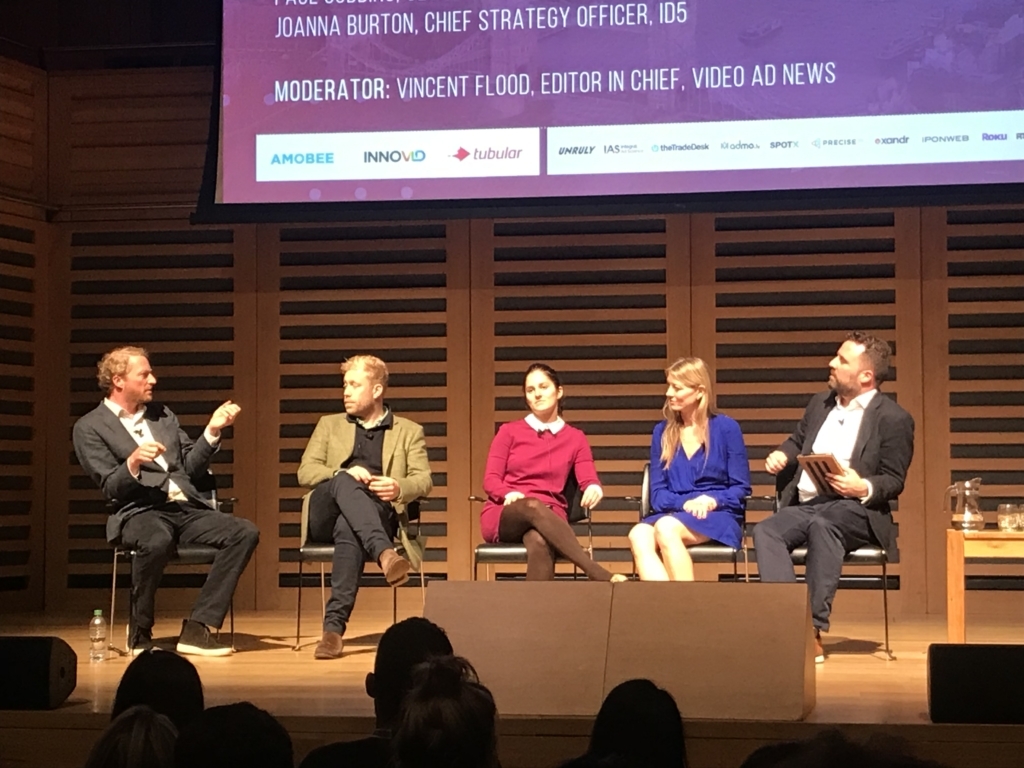The Cookie Conundrum, the ICO and Jack Straw: 7 Key Takeaways From New Video Frontiers
It’s conference season in the ad industry at the moment. I suppose it’s a little like the entertainment awards season in California, but without the sunshine, red carpet and glamour.
And as we run (or stagger) from conference to awards to roundtable session, it’s hard to remember who said what, where and when. Especially when you can’t read the illegible notes you scribbled down on a piece of paper to remind yourself (someone tore out their notebook as you forgot to bring your own).
So I thought I’d save you the trouble. Here are my top seven takeaways from the recent New Video Frontiers:
1.OTT revenue is going to grow but barriers and obstacles will slow its growth
Advertisers follow audiences, and that’s why “50% of advertisers plan to increase their CTV spend going into 2020 and beyond”.
Furthermore, traditional broadcasters have realised that by leveraging technology they can open up new revenue streams for their businesses and work with, rather than against, the disruption in the marketplace. It’s an exciting market, with enticing over-the-top (OTT) and connected TV (CTV) offerings for viewers and advertisers.
However, even within individual broadcasters, there are challenges. Metrics are siloed within technologies and teams, OTT is ripe for ad fraud, whereas this was not the case with linear TV. And if Amazon ups its TV distribution, it could be hard to compete with them as they have the content, the audience, the servers, and the shop.
2. Jack Straw is a very wise man
The former Home Secretary, Justice and Foreign Secretary Jack Straw spoke extensively about changes in media consumption, how far we’ve come in terms of culture (e.g. stamping out racism in media) and his role in data protection and the introduction of the Information Commissioner’s Office (ICO).

But it was these quotes that really resonated with me: “Google and Facebook will be subject to antitrust here or in the US …fairer share of revenues from the use of these platforms …they will fight like crazy any attempts to undermine their revenues.”
3. The ICO doesn’t want to crush publishing and advertising
The top execs at the ICO have been making themselves heard in the industry lately, appearing at a number of events to urge companies to take GDPR compliance more seriously.
They don’t want to damage the publishing and advertising sectors, but their role is to ensure companies are adhering to regulation and are protecting individuals’ data.
The ICO looked at the huge volume of data ad tech processes and narrowed the target to Real-Time Bidding (RTB), which is so complex the ICO has yet to meet anyone who knows everything about it.
Their conversations with the IAB around the Transparency and Consent Framework have been very productive, but they also need to see a response to their concerns around security and sensitive data.
They do not want to stifle innovation and creativity, but ultimately if you can’t make your business model work without being GDPR-compliant, then that’s your issue, not theirs. They have approached the industry as a whole as they are concerned about bankrupting publishers and playing industry whack-a-mole with issues and companies.
4. If we are innovative as an industry then there is life in a cookieless world
A very entertaining panel (which included our own Paul Gubbins and Stephanie Layser from NewsCorp) debated “Context and content. Can digital advertising cope without the cookie?”

It was refreshing to hear positive solutions rather than laments of “it’s the end of the world”.
Ideas included the unified ID; learning from COPPA and GDPR that restriction doesn’t mean the end of advertising; predictive contextual i.e. using machine learning to predict who is behind the screen, what they are watching and what mind they are in; uniting to fight back against the duopoly; and learning from the duopoly, we have to innovate and collaborate to make it easier to buy outside the walled gardens.
5. In-housing is not the silver bullet for advertisers’ woes
During the roundtables, our table had a lively debate on this topic. Challenges include talent recruitment and retention due to location, budget issues (employee headcount versus procurement), getting access to and visits from media owners, and that it might cost more than forecast due to initial start-up costs like technology and recruitment fees.
However, for some brands, it’s working well due to better business and product understanding and the ability to have control and deeper trust among the team.
6. We still have so far to go in terms of gender diversity
While Video Ad News editor Vince Flood and his team did an excellent job at sourcing a range of female speakers for the event, the leadership roundtables were dominated by men, which, given we were in a building which bore a plaque saying “Emeline Pankhurst and her daughters Christabel and Sylvia founders of the Suffragette Movement lived in a house on this site”, was disappointing.
This isn’t just my perspective. Kate Tancred, co-founder & CEO of The Smalls, declared that her company is on a crusade to have 50% of their content produced by women, and that if she could fix one thing in advertising, it would be gender diversity.
7. The future is more collaboration, not siloes
Our industry must collaborate to align metrics across OTT and linear TV, to unify IDs and metrics in a cookieless world, to satisfy/appease the ICO and to counteract the duopoly.
With pressure from regulation and the duopoly, now is the time for the industry to own the challenge and collaborate to make holistic measurement, planning, and execution a reality.
Click here to find out more about Unruly, and how we could work with you.
